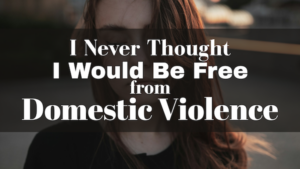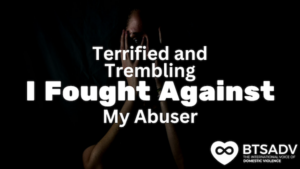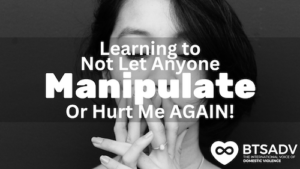Hiding Behind A Hashtag
#NotAllMen was trending once again on Twitter within the past few weeks. It rears its ugly head quite frequently. Whenever there is some public sexual harassment or sexual assault scandal, we hear the same cries from “the good guys.” These men will post about how they “respect women,” and may even mention that…surprise, surprise…there are also female members of their family, and they love those female members of their family.
Unfortunately, it is all men.
The Problem With “Not All Men “
Why this hashtag, and sentiments like “nice guys finish last” have such a negative effect on our discourse about sexual harassment, sexual assault, and Domestic Violence is that the people who are saying it honestly believe it to be true. Of course, there are men who intentionally and deliberately use this as a weapon to control the narrative, but bad-faith actors aren’t the only ones using the hashtag. Many of the men saying “not all men” have never intended to hurt a woman. Many of the men saying “not all men” have probably even tried to be allies to women in difficult situations.
The sheer fact that #NotAllMen can trend on social media indicates that many men are oblivious to the problem. In fact, the absurdity of men flocking to Twitter to say that they have never sexually harassed a woman is a big part of the problem. They are setting themselves up as the defendant, defense attorney, and judge in a proceeding that doesn’t even have an accuser. These men may not be aware of times that their words or actions have made a woman feel uncomfortable sexually. These men may have had interactions with women that have been resolved through a conversation. They may even have learned from those interactions and conversations. Learning does not absolve. Forgiveness does not absolve. It is still a mistake.
Missing the Point
#NotAllMen isn’t a symptom of the problem, it is the problem. The hashtag reframes the discussion to be one of intent. With an act of rhetorical slight-of-hand, sexual harassment is no longer the center of the conversation. The proverbial magician has created a diversion with his left hand, while pulling out the Ace from his right sleeve. Conversations of sexual harassment, sexual assault, and Domestic Violence need to focus on the women, and often men, who are victims of this behavior. This isn’t the time to coddle male egos. Instead of hijacking the conversation with a hashtag intent to vindicate you from any potential criticism, join the conversation. If you truly are a “good guy,” irradicating sexual harassment would be a higher priority than a preemptive public relations campaign against non-existent accusations.
As a man, I have 100% made mistakes in this area in my life. It was never my intent to make someone feel uncomfortable, but that doesn’t matter. It may be a hard pill for a lot of us men to swallow, but there are probably times that we have made people feel uncomfortable sexually in public or business settings, and nobody ever told us. We could be blissfully ignorant of the joke, comment, or well-intentioned compliment that someone just accepted as a “cost of doing business.” How can we claim #NotAllMen, when there could be dozens of these little moments out in the universe?
Accountability of All Men Over Taglines
Justice is hard. We have to be able to admit #YesAllMen, so that we can turn the mirrors towards ourselves and our own actions. As men, if we accept that we have almost certainly made mistakes, we can work on not making those same mistakes in the future. In recent years, it has become glaringly obvious even to the most unreceptive observer that sexual harassment is a huge problem that permeates all aspects of society from sports to politics to Hollywood to offices. People are being harmed by this every day. We can’t shirk responsibility.
Luckily, many women commandeered the hashtag to tell their stories about harassment. We need to hear those stories. Men, we need to stop making this about our intentions. Most abusers don’t view themselves as abusers. Most harassers don’t view themselves as harassers. It is a small segment of society that goes out and tries to harm people. Until we can all listen to victims of sexual harassment without getting defensive, we will never learn ways to be even better. We can’t be “good guys” until we have learned what that actually means, and how it looks in our societal interactions. We can’t be “good guys” until we can look back on a situation and admit we made a mistake. To truly be a “good guy,” you have to work towards equitable workplaces and public spaces where people can feel safe and comfortable to interact.









